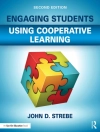This book explores the transnational practices of migrant groups in global London, illustrating the complex relations between migrants and the city in the context of globalisation. The chapters offer a starting point to examine migrants and the city from a comparative perspective by bringing together case studies of diverse migrant communities. They use ‘languaging’ as the central concept in the development of an interdisciplinary framework that creates an opportunity to ‘talk across disciplines’ to engage with key issues crisscrossing migration, cities and language. The book promotes ‘language-based’ or ‘language-sensitive’ research, drawing on the plurilingual repertoires and the language and translanguaging practices of migrant communities as the tool for data collection and ethnographic fieldwork. This approach generates fresh insights into the complex issues of diasporic identities, belonging and place-making, which have broad implications for migration studies in post-Brexit Britain and beyond.
Innehållsförteckning
Figures
Contributors
Acknowledgements
Foreword
Chapter 1. Cangbai Wang and Terry Lamb: Introduction: Bridging the Gap between Migration, Cities and Language: An Interdisciplinary Perspective
Part 1: ’Metrolingual Space’: Cultural Translation, Language Ideologies and Diasporic Identities in a Global City
Chapter 2. Giulia Pepe: Negotiating New Migratory Identities through Multilingual Practices: The Case of Post-Crisis Italian Migrants in London
Chapter 3. Saskia Huc-Hepher and Fabrice Lyczba: ’Sorry, I’m French’: Frenchness as Uneasy Resource in the Construction of Home, Identity and Belonging among French Students in London
Chapter 4. Umit Cetin and Celia Jenkins: Alevi Kurds in the UK: Paving the Way Towards Recognition of a New Ethno-Religious Identity
Part 2: ’Performative Space’: Visualising, Sounding and Acting Identities in a Transnational Field
Chapter 5. Benedetta Morsiani: Performing Black Beauty: The Congolese Community in London
Chapter 6. Denise Kwan: Articulating the Subjectivities of British Chinese Women through Art and Material Objects
Chapter 7. Cangbai Wang: Negotiating Diasporic Identities in Glocal Heritage Discourses: The Case of the Chinese New Year Celebration in London
Chapter 8. Julie Marsh: Performing the Symbiotic Relationship Between the Adapted Mosque and its Congregation
Part 3: ’Heritagisation Space’: Collecting, Remembering and Transmitting the Past for a Shared Future
Chapter 9. Susan L.T. Ashley: Spaces of Heritagisation: The UK Indian Communities and Memorials of War
Chapter 10. Alison Barnes: Tracing the Graphic Heritage of Hackney’s Migrant Communities through Food
Chapter 11. Xiao Ma: Contesting Everyday (Food) Heritage in London’s Chinatown
Chapter 12. Ailsa Peate and Lucia Brandi: A Museum for Me: Place and Memory Making with Mujer Diáspora
Index
Om författaren
Terry Lamb is Professor of Languages and Interdisciplinary Pedagogy at the University of Westminster, London, UK. His most recent book is Insights into Language Education Policies (ed. 2020, Peter Lang, with M. Jiménez Raya and B. Manzano Vázquez).












